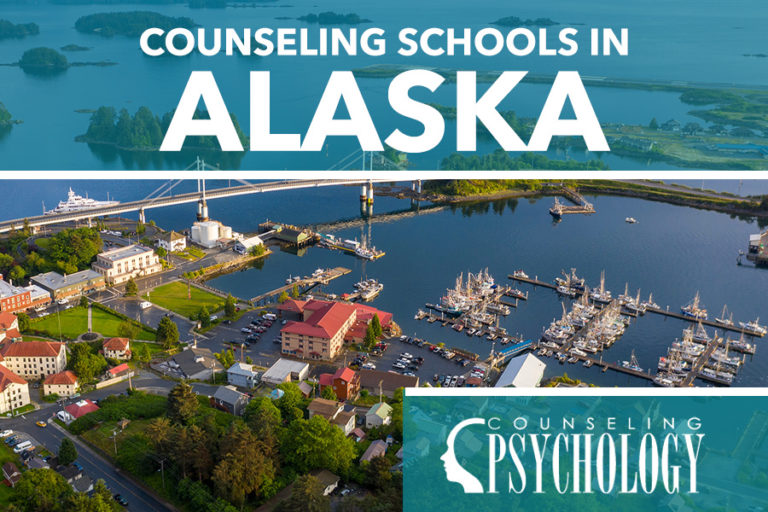Best Counseling Schools in Alaska
The long and dark winters in Alaska create a high demand for counseling, and people also come to counselors for many other non-winter issues. If you’re looking for a profitable and fulfilling career, becoming a counselor in Alaska could be a great choice. Here are some of the best counseling programs in the state.

How to Find a Counseling Program in Alaska
Alaska has many different counseling programs, including varying levels of education, other specialties, and different course modes. Compare the various options to find a counseling program in Alaska that meets your budget and scheduling needs, as well as your interests and career aspirations.
Counseling Degree Pathways in Alaska
Many different academic degrees are available for counselors. Alaska requires graduate work to become a licensed counselor and work independently. Lower degrees may qualify you to work under a licensed counselor, but you might also work within the counseling field in other capacities. The various counseling degree options are:
- Associate Degree: Usually a two-year program and requires only a high school diploma/GE
- Bachelor's Degree: Usually a four-year program requiring a high school diploma/GED. Some programs may have additional qualifications for applicants.
- Master's Degree: Usually, a one to two-year program requires a bachelor's degree.
- Doctorate Degree: Usually a three to six-year program and requires a bachelor's or master's degree. Maybe a professional degree (Psy.D.) or a research degree (Ph.D.).
- Graduate Certificate: Usually a six-month to one-year program requiring a bachelor's or master's degree. It can be used to focus on a specialized area of counseling.
You can start with one of the degrees you qualify for and then work up to higher degrees if you wish. Some employers may pay for your advanced degrees if you already have a job in the field.
Choose a Counseling Specialty
Counselors can provide general services, or they may specialize in any number of focus areas. Some counseling specialties you might want to consider are:
- Marital and family therapy
- Behavioral health
- Social work
- Alcohol and drug abuse
- Trauma
You'll find various advanced counseling degree programs with multiple specialties.
Available Alaska CACREP Counseling Programs
Accreditation ensures the quality of a school's degree program and that the degree will be recognized. You should only choose an accredited degree program. Some accrediting agencies are the Council for the Accreditation of Counseling and Related Education Programs (CACREP) and the American Psychological Association (APA).
University of Alaska Fairbanks – CACREP Accredited Since January 2018
The M.Ed. in School Counseling and M.Ed. in Clinical Mental Health Counseling have been officially CACREP accredited since January 12, 2018, expiring on March 31, 2026. Programs are available at the Fairbanks, AK campus, and online delivery.
Online vs. Traditional Counseling Programs in Alaska
You can pursue a counseling degree online or through the traditional classroom format. Online counseling degrees are more affordable, offer more scheduling flexibility, and don't require relocation. Traditional classroom counseling degrees allow you to interface in person with professors and classmates and get easy access to all of the school's resources.
Choose whichever format better suits your other obligations and learning objectives.
Becoming Licensed as a Counselor in Alaska
Licensed counselors must meet several criteria, including 60 credit hours at the graduate level (master's or doctorate program), 3,000 hours of supervised experience, a licensing exam, and a licensure fee. There's no internship requirement aside from the 3,000-hour requirement.
You don't have to become licensed to work under a licensed counselor. You can work on these requirements as you work at a job in the field.
Renewing licenses requires 20 to 40 contact hours with clients and 10 to 15 continuing education credits. The exact requirements depend on how long you've been licensed.
List of Counseling Degree Programs in Alaska
Are you searching for a counseling degree program in Alaska? Browse our comprehensive list of schools offering counseling programs, both online and on-campus, and follow the links to learn more about what each program has to offer.
Fairbanks, AK
University of Alaska Fairbanks
- M.Ed. in Clinical Mental Health Counseling Online Campus
Fairbanks, AK 99775
(907) 474-7500
Are we missing your school's program or need to update information listed? Please contact us so we can make the necessary changes.
